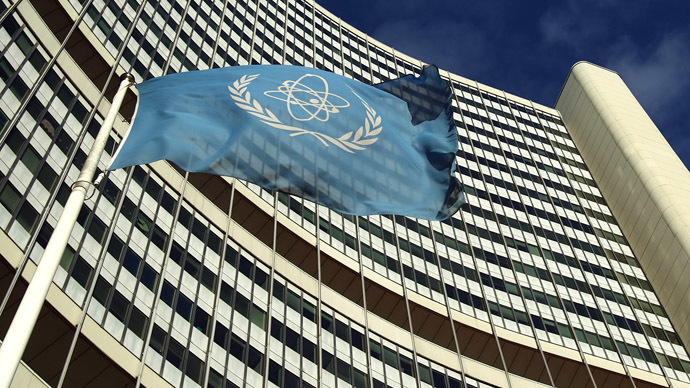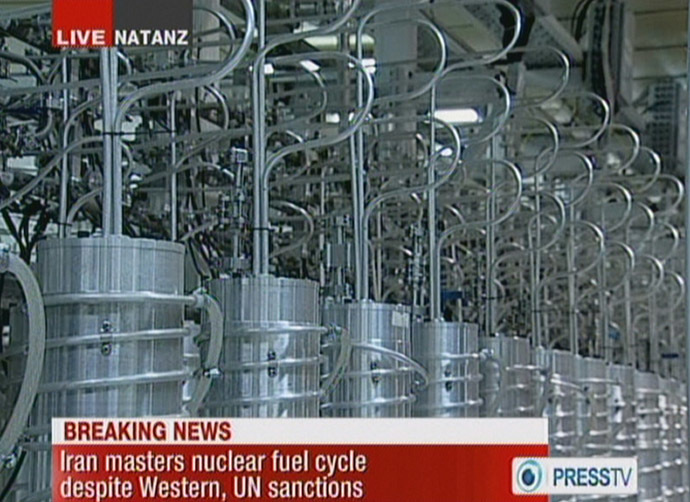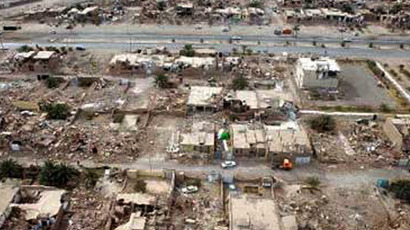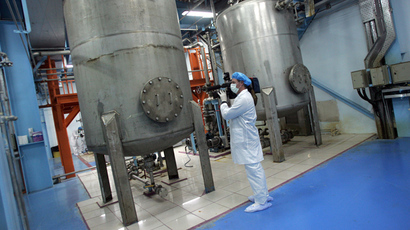UN atomic watchdog eyes opening ‘own office’ in Iran

The International Atomic Energy Agency (IAEA) is planning a temporary office in Iran. Increasing its presence in the country is currently on the table, diplomats announced.
Up until now, the IAEA inspectors, who frequently travel to Iran, have had no operational base in the country. The agency has one to two teams of two inspectors each on the ground, but the number is now set to increase as, according to Vienna-based envoys, "at least another team would be required” in the Islamic Republic.
"It is to make it (the agency's activities) more effective," one of the Vienna-based diplomats said, because a new IAEA facility in Iran can reduce the time and money spent on travel to and from Iran.
“If staff are there every day, they should be able to have an office," a Western diplomat in the Austrian capital told Reuters, adding he did not think the project “would be sensitive”.
The IAEA office in Iran could help ease the administrative and logistical burden of carrying out more frequent inspections of Iran's enrichment sites in the central town of Natanz, the underground uranium enrichment facility in Fordow and other facilities, diplomats accredited to the IAEA said.
"Far more important is to have a robust and credible verification scheme to monitor the number of centrifuge rotors stocked and produced in Iran," former IAEA chief inspector, Olli Heinonen, said.
However, the spokesman for the Atomic Energy Organization of Iran (AEOI), Behrouz Kamalvandi, has denied the report to the Mehr News Agency, saying a UN watchdog’s office in Iran has not ever been discussed in any bilateral meetings.

The extent of IAEA monitoring may be controversial in Iran, as in the past the Islamic republic has accused the IAEA of being backed by the West, and leaking confidential information to opponents in order to sabotage the country’s nuclear program.
However, historic talks in Geneva, between Iran and six world
powers in November, put relations onto a totally new track. Iran
concluded after the talks that the international community had
finally accepted the country’s right to its uranium enrichment.
The Islamic republic agreed – for a limited easing of sanctions –
it "will stop enriching uranium beyond 5%, and ‘neutralise’
its stockpile of uranium enriched beyond this point," and
fulfill other requirements.
Among those was to provide IAEA inspectors with daily access to
the Natanz and Fordow sites.
To fast-track the changes, Iran’s President Hassan Rouhani said, following the Geneva talks, that a "comprehensive agreement [on the Iran nuclear program] will start immediately."
Tehran’s nuclear deal with the world powers comes into effect on January 20, Iran’s Deputy Foreign Minister, Abbas Araqchi, confirmed on Sunday.
The UN agency is expected to hold a meeting in late January where the IAEA's additional work in the Islamic Republic will be discussed.
The IAEA assessed that extra-work would cost roughly 5 million euros and that some of it would be covered by voluntary member state contributions, said diplomats last month.
The US and its allies claim that Iran is using the program as a cover to secretly build a nuclear weapon. Tehran denies the allegations, saying that its nuclear facilities are used for civilian purposes. The Islamic Republic says its nuclear program is necessary to produce energy, as well as isotopes for research and medical devices.














